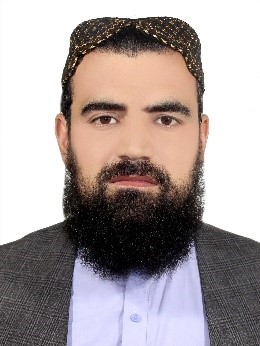Dean of Veterinary Faculty
 |
|
|
|
Assistant Professor Abdul Latif Rahimi is a distinguished academic staff member of the Clinic Department at the Faculty of Veterinary Sciences. Mr. Rahimi completed his secondary education at Imam Abu Hanifa High School, located in Tangi Region, Maidan Wardak Province, in the year 2009. In 2010, he undertook the entrance examination with great aspiration and successfully gained admission to the Veterinary Faculty of Nangarhar University. He graduated from this institution in 2015, earning his bachelor's degree with honors. Profoundly dedicated to the noble profession of teaching, Mr. Rahimi aspired to contribute to his country and its people through education. To realize this aspiration, he participated in an open competition in 2017. He successfully passed the examination and was subsequently appointed as an academic staff member at the Veterinary Faculty of Sheikh Zayed University. In 2020, he pursued further academic advancement at the University of Lorestan in Iran, where he completed his master's studies. Notably, he received his master's degree in general parasitology in 2022, marking a significant milestone in his academic career. Upon completing his master's degree, Professor Rahimi returned to his home country, where he witnessed the Islamic Emirate's significant victory and triumph. During this period, he was actively involved alongside other leaders and representatives of the Islamic Emirate. Recognizing his talent and experience, and based on the recommendation of the Ministry of Higher Education of the Islamic Emirate and the directive of the Prime Minister, he was appointed as the Academic Vice-Chancellor of Sheikh Zayed University. In this role, Professor Rahimi demonstrated exceptional ability, commitment, and transparency. He contributed significantly to the academic development of the university and played a key role within the academic staff and the Ministry of Higher Education. His tenure was marked by innovative contributions that facilitated numerous advancements at Sheikh Zayed University. In 2023, he was elected as the Dean of the Faculty of Veterinary Sciences, a position he continues to hold, further driving the faculty’s growth and success. |
||
Message from the President of the Veterinary Sciences Faculty
Sheikh Zayed University is recognized as one of the most prestigious institutions in the country and the South-East region, having provided exemplary services for over two decades. Among the twelve faculties of Sheikh Zayed University, the Faculty of Veterinary Sciences stands out as a vital component, established within the university framework in 2013. This faculty plays a crucial role in training skilled professionals essential for the growth and development of the country’s livestock sector, which is pivotal for the nation's economic advancement. In many provinces of Afghanistan, livestock and agriculture represent the primary economic sources for impoverished communities and are integral to the country's economic development. Consequently, the advancement of the livestock sector is a significant objective of the Afghan government. This development requires a well-trained and capable workforce. The Faculty of Veterinary Sciences is committed to providing high-quality education to the younger generation, recognizing that experts and proficient leaders in this field are indispensable for progress. With the support of these specialists, effective management and training can be achieved in various sectors, including poultry farms, fish farms, bee farms, calf and cow farms, and goat and sheep farms, ensuring proper prevention and treatment measures. In alignment with the strategic objectives and policies set forth by the Ministry of Social, Economic, and Scientific Development of Afghanistan and the Ministry of Higher Education, the Faculty of Veterinary Sciences at Sheikh Zayed University has, over recent years, successfully trained numerous young veterinarians. These professionals are now contributing to their communities across the country, whether through employment or independent endeavors, thus playing a significant role in the nation's development. The Faculty of Veterinary Sciences remains committed to advancing its efforts and making further impactful contributions in the future. Veterinary faculties are essential to the country's economic, health, and social progress. Accordingly, veterinary professionals are crucial not only to the advancement of the livestock sector but also to the broader societal development. In conclusion, I extend my best wishes for a prosperous and thriving Afghanistan.
Kind regards,
Prof. Abdul Latif Rahimi